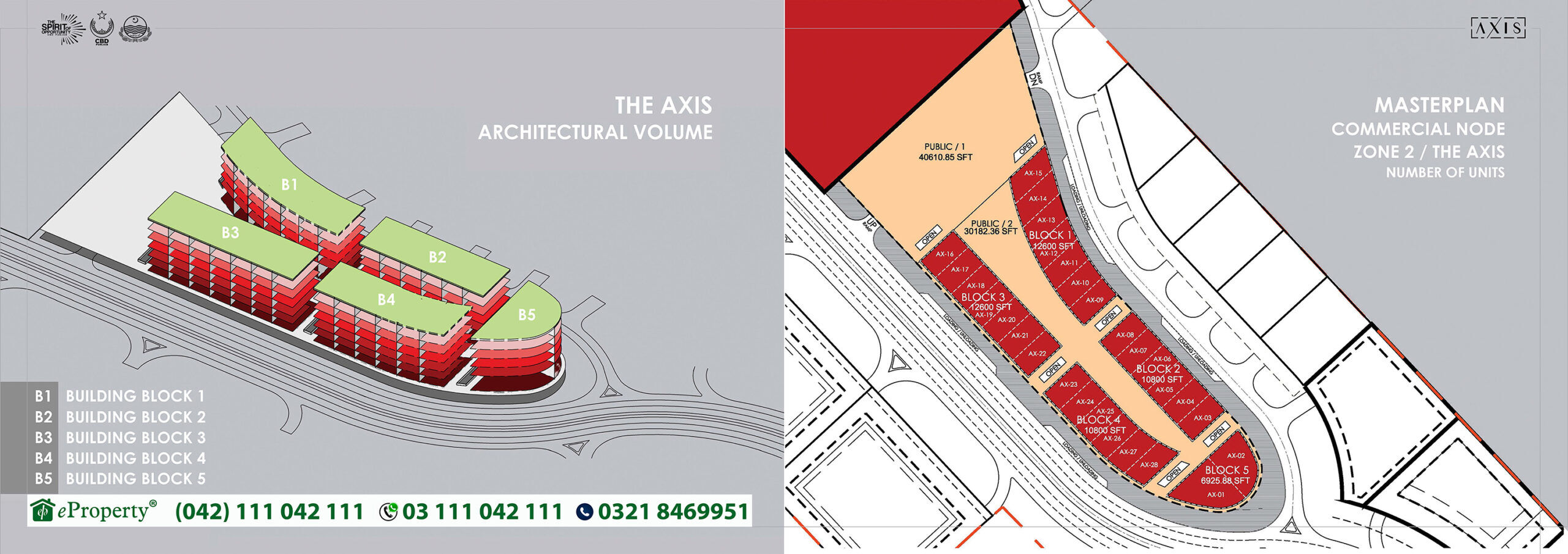Residents tout Bahria Town as a model for the government. Critics say the exclusive area, made possible by a partnership with the military, points up much that is wrong with Pakistan.
Reporting from Rawalpindi, Pakistan— The houses and manicured lawns slope up the artificial hill edged by unbroken sidewalks and white picket fences, as children play and residents exchange pleasantries.
This sprawling subdivision called Bahria Town — “Come home to exclusivity,” it boasts — operates its own garbage trucks, schools, firehouse, mosques, water supply and rapid-response force — a kind of functioning state within a nonfunctioning one. And all supplied without the bribes you’d pay on the outside, residents say.
It’s like you’re in a little protected country — tidy, utilities work, the family can relax. If there’s any problem, you just ring up security,” one resident says of life in Bahria Town, an exclusive subdivision of the Pakistani garrison city of Rawalpindi. (Mark Magnier / Los Angeles Times)
“I like living here,” said Abdul Rashid, a sixty something retired government worker. “It’s like you’re in a little protected country — tidy, utilities work, the family can relax. If there’s any problem, you just ring up security.”
The jarring presence of a middle- and upper-class retreat in this increasingly violent nation has been paved, in part, by the involvement of the country’s powerful military. Benefiting from laws put in place during British Empire days to reward friendly armies and militias with land grants, the military now controls about 12% of Pakistani state land, by some accounts. And its privileged position allows it to partner with and otherwise route valuable tracts to favored developers.
Bahria Town and its partner, the military-run developer Defense Housing Authority, occupy twice as much land as Rawalpindi, the garrison city 30 minutes from the capital, Islamabad.
In the posh Safari Villas subdivision, past Sunset Avenue and College Road, Mohammad Javed, 69, surveys his pocket garden before heading into his three-bedroom corner house with a beige sofa ensemble and Samsung flat-screen TV. Houses in the neighborhood run from $25,000 to $60,000, well out of reach of most Pakistanis.
Bahria Town has been a hit not only with moneyed Pakistanis but also with returnees. Javed, who owned a gas station in Canada before retiring, hopes to replicate his North American lifestyle. Bahria’s protective walls bring security, he said, although he still won’t let his grown children visit lest something bad happen beyond its confines. “We meet in Thailand or Canada,” he said.
Although it’s difficult to blame Pakistanis for retreating behind private walls as suicide bombings, political killings and political unrest intensify, some view the trend with concern. They fear the projects widen the rich-poor gap and damage the environment.
This growing tangle of developments destroys farmland, fuels traffic nightmares and undermines community life, said architect Jamshaid Khan, who designs houses for Bahria Town and its partner. Sprawling Bahria Town has no cricket or soccer fields or even libraries because there’s no immediate profit in it, he said.
“I volunteered to design libraries for free, even donate books,” he said in his office, packed with blueprints. “But they didn’t want them.”
These communities also highlight economic disparities.
“It’s unfair,” Mohammad Ameen, 30, a tailor living outside the Bahria Town gate, said as he adjusted a tape measure around his neck. “Rich Pakistanis live the good life and we suffer. It’s a state within a state. And the energy used by these palaces only worsens shortages for the rest of us.”
Rawalpindi’s forest department, among others, recently accused Bahria Town of encroachment. Other complainants who file lawsuits say the group’s strong connections with the police, courts and local politicians make justice elusive. The company did not respond to repeated requests for comment.
This week, Bahria Town General Manager Saeed Akhtar, a retired colonel, was detained by anticorruption investigators along with site supervisor Muhammad Iqbal over allegations that the developer bought 175 acres using forged documents. The firm’s lawyer, Malik Waheed Anjum, was quoted by the Express Tribune newspaper as saying Bahria Town was the victim of revenue officials who forged ownership documents.
Malik Riaz, the force behind Bahria Town, started in the 1980s as a small-time contractor. As competitors targeted the rich, he built for the emerging middle class, becoming one of Pakistan’s richest developers.
Critics say Riaz’s Bahria Town empire has been fueled by close ties to the military. Ayesha Siddiqa, author of “Military Inc: Inside Pakistan Military Economy,” alleges that those links have allowed him to acquire land, in some cases returning a percentage to senior officers as developed plots.
“Even the good ones, with a reputation for not being too corrupt, walk away with two or three pieces of real estate,” she said. “It’s a mutual benefit.”
Official figures show the military controls 11.6 million acres, or 12%, of Pakistani state land, Siddiqa said, with half of that directly controlled by retired or serving military officers in a nation with more than 20 million landless peasants.
“No one besides the military has such access,” she said. Bahria Town advertised on a recent Sunday for retired major generals and lieutenant generals to fill positions at the company, Siddiqa said: “These are his keys” to greater access.
But for resident and food industry entrepreneur Shaheryar Eqbal, these are minor issues relative to what Bahria Town delivers.
“The government should take these communities as a model and replicate them,” he said. “The army already has a joint venture with Bahria Town. Things work. Pakistan must get through this terrorism phase, but this could really be the future.”
Special correspondent Nasir Khan in Islamabad contributed to this report.
Join the eProperty Community for daily Pakistan Property rate updates, the latest developments, and news.
Property buying and selling was never easy before; simply connect with our WhatsApp hotline for absolutely free property consulting. Please save this number, +923111042111 in your contact list to get regular updates from us; otherwise, you will not receive any updates.


